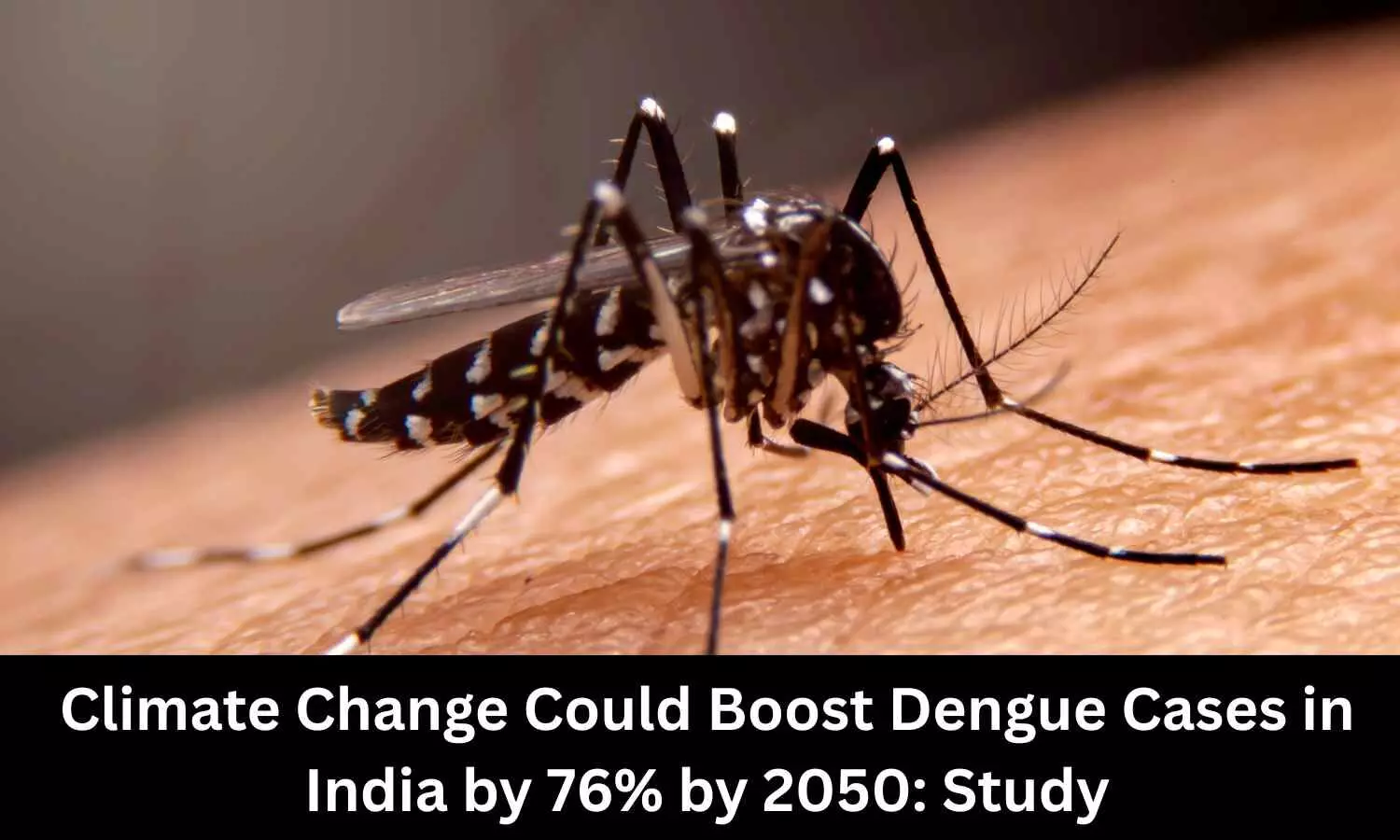Climate Change could increase dengue cases in India by 76% by 2050: Study
- byDoctor News Daily Team
- 15 September, 2025
- 0 Comments
- 0 Mins

A recent study, Published in the journal Proceedings of the National Academy of Sciences , highlighted that climate warming is worsening dengue's impact in India. Rising temperatures have expanded the habitat of the Aedes mosquito, increasing dengue cases across the country. India is among the regions expected to see a significant surge in dengue infections by 2050. The disease thrives at around 27.8°C, making cooler parts of India more vulnerable as temperatures rise. From 1995 to 2014, climate change already caused an estimated 18% increase in dengue cases in Asia, equivalent to over 4.6 million additional infections annually. Without urgent climate action, dengue cases could rise by up to 76% by mid-century. The study underscores India’s urgent need for robust public health strategies like improved mosquito control, enhanced healthcare services, and widespread dengue vaccination. This is crucial since India's rising temperatures, erratic monsoon patterns, and high population density create fertile ground for the disease. By adopting aggressive climate mitigation and adaptive health measures, India can better protect its citizens and reduce the growing dengue burden. REFERENCE: M.L. Childs,K. Lyberger,M.J. Harris,M. Burke, & E.A. Mordecai, Climate warming is expanding dengue burden in the Americas and Asia, Proc. Natl. Acad. Sci. U.S.A. 122 (37) e2512350122, https://doi.org/10.1073/pnas.2512350122 (2025).
Disclaimer: This website is designed for healthcare professionals and serves solely for informational purposes.
The content provided should not be interpreted as medical advice, diagnosis, treatment recommendations, prescriptions, or endorsements of specific medical practices. It is not a replacement for professional medical consultation or the expertise of a licensed healthcare provider.
Given the ever-evolving nature of medical science, we strive to keep our information accurate and up to date. However, we do not guarantee the completeness or accuracy of the content.
If you come across any inconsistencies, please reach out to us at
admin@doctornewsdaily.com.
We do not support or endorse medical opinions, treatments, or recommendations that contradict the advice of qualified healthcare professionals.
By using this website, you agree to our
Terms of Use,
Privacy Policy, and
Advertisement Policy.
For further details, please review our
Full Disclaimer.
Recent News
Ketogenic diet may protect against stress experien...
- 03 November, 2025
STORM-PE Trial: Mechanical Thrombectomy Shows Supe...
- 03 November, 2025
AIIMS INI CET January 2026 admit cards released
- 03 November, 2025
3 pharma students drown in Payyambalam beach in Ke...
- 03 November, 2025
Daily Newsletter
Get all the top stories from Blogs to keep track.


0 Comments
Post a comment
No comments yet. Be the first to comment!